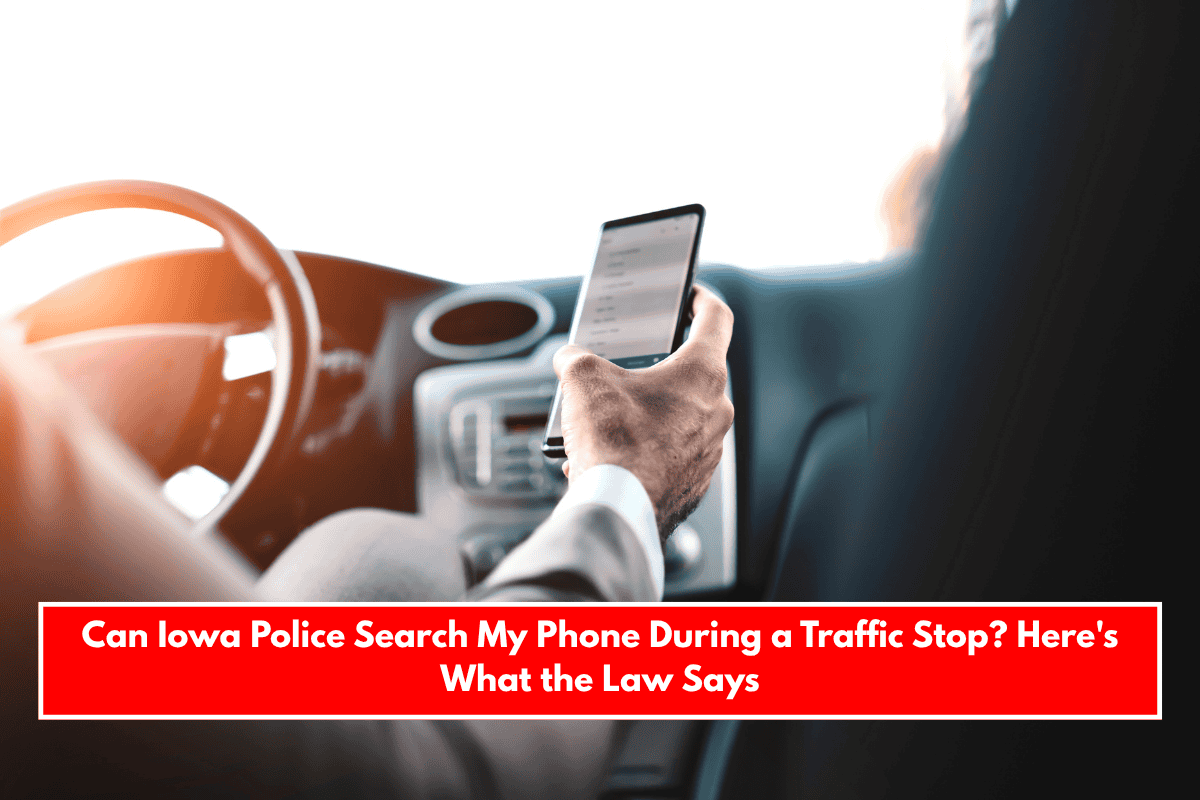Understanding your rights during a traffic stop is crucial-especially when it comes to your smartphone, which can contain vast amounts of personal information. Here’s a comprehensive overview of what Iowa law and constitutional protections say about police searches of your phone during a traffic stop.
Fourth Amendment Protections
The Fourth Amendment to the U.S. Constitution protects individuals from unreasonable searches and seizures. This fundamental right applies to your person, your vehicle, and your electronic devices-including your cell phone.
When Can Police Search Your Phone?
Police in Iowa cannot search your phone during a traffic stop without one of the following:
- Your consent
- A valid search warrant
- Probable cause to believe your phone contains evidence of a crime
Consent:
If an officer asks to search your phone, you have the right to refuse. You are not required to unlock your device or provide your password. Clearly and politely state that you do not consent to a search.
Search Warrant:
Without your consent, police generally need a search warrant-signed by a judge and specifying what may be searched-to access your phone. A proper warrant must include your name, address, details of the items to be taken, a deadline for the search, and a judge’s signature.
Probable Cause:
If police have probable cause to believe your phone contains evidence of a crime, they may seize it as evidence. However, they still cannot search its contents without a warrant. For example, if you are arrested for a serious offense and police believe your phone holds relevant evidence, they can take the phone but must obtain a warrant to search it.
Traffic Stops and Cell Phone Use
Iowa law prohibits writing, sending, or viewing electronic messages while driving, and a new bill (expected to take effect July 1, 2025) will ban virtually all handheld cellphone use while driving, except for hands-free or emergency situations. Police may stop you if they observe you violating this law, but this does not automatically give them the right to search your phone’s contents.
Supreme Court Rulings and Iowa Precedents
The U.S. Supreme Court has made it clear that police cannot arbitrarily search people or their belongings-including phones-during traffic stops for minor violations. In Knowles v. Iowa, the Court struck down Iowa’s previous “search incident to citation” law, ruling that officers must have probable cause or make an arrest before conducting a search.
“Normally, police must either physically arrest someone or have ‘probable cause’ before they can conduct a search.”
- Knowles v. Iowa (U.S. Supreme Court)
Exceptions: When a Warrantless Search Might Be Allowed
There are rare exceptions where police could search your phone without a warrant, such as:
- Exigent circumstances: If there is an immediate threat to life, risk of destruction of evidence, or other urgent situations, officers may be permitted to search without a warrant.
- Incident to arrest: If you are lawfully arrested, police may search your person for weapons or evidence, but the U.S. Supreme Court has ruled that searching the digital contents of a phone still requires a warrant, even after arrest.
Your Rights at a Glance
| Scenario | Can Police Search Your Phone? |
|---|---|
| Routine traffic stop | No, unless you consent or they have a warrant/probable cause |
| You give consent | Yes |
| Police have a search warrant | Yes |
| Probable cause (but no warrant) | Can seize, but need warrant to search contents |
| Exigent circumstances (rare) | Possibly, but must justify urgency |
| You are arrested | Can seize, but need warrant to search contents |
What Should You Do If Asked to Hand Over Your Phone?
- Politely decline if you do not want your phone searched.
- Do not unlock your phone or provide your password unless presented with a valid warrant.
- Ask to see a warrant if the officer claims to have one.
Summary
- Iowa police cannot search your phone during a traffic stop without your consent, a search warrant, or probable cause.
- You have the right to refuse a search and to keep your phone locked.
- Even if your phone is seized, police need a warrant to search its contents, except in rare emergency situations.
- Recent and pending Iowa laws target handheld cellphone use while driving, but enforcement of these laws does not give police automatic access to your phone’s data.
Knowing your rights helps you protect your privacy during any police encounter in Iowa.
Sources:
- https://iowaappeals.com/uncategorized/traffic-stop-is-justified-if-common-sense-suggests-driver-violated-cell-phone-law-iowa-supreme-court-rules/
- https://coolidgelawfirmaz.com/can-the-police-search-through-my-phone/
- https://www.aclu.org/press-releases/high-court-strikes-down-iowas-traffic-stop-and-search-law
- https://www.iowapublicradio.org/state-government-news/2025-03-26/iowa-house-passes-a-bill-banning-handheld-cellphone-use-while-driving
- https://www.iowa-city.org/weblink/0/doc/1489984/Electronic.aspx















